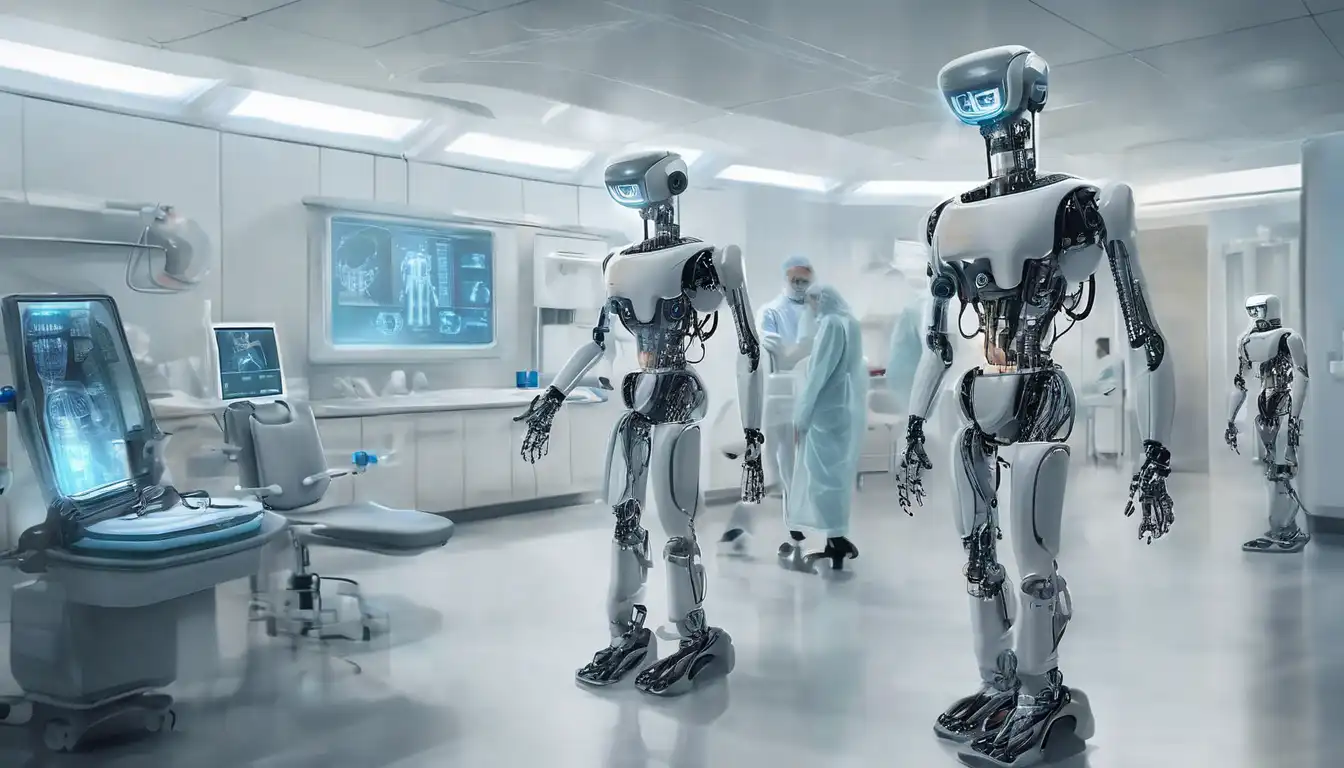The Next Era of Robotics in Healthcare
The integration of robotics into healthcare is transforming patient care, surgical procedures, and rehabilitation processes. This technological evolution promises to enhance precision, efficiency, and outcomes in medical treatments. As we look towards the future, the potential for robotics in healthcare seems boundless, offering solutions to some of the most pressing challenges in the field.
Enhancing Surgical Precision with Robotics
Robotic surgery has become a cornerstone of modern medical practices, enabling surgeons to perform complex procedures with unprecedented accuracy. Systems like the Da Vinci Surgical System allow for minimally invasive surgeries, reducing patient recovery times and improving surgical outcomes. The future may hold even more advanced systems, capable of autonomous operations under the supervision of human surgeons.
Robotics in Patient Care and Rehabilitation
Beyond the operating room, robotics plays a pivotal role in patient care and rehabilitation. Robotic exoskeletons, for instance, are helping patients regain mobility after spinal cord injuries. Similarly, robotic prosthetics are becoming more sophisticated, offering users greater functionality and a higher quality of life. These advancements underscore the potential of robotics to revolutionize rehabilitation and long-term care.
The Role of AI in Healthcare Robotics
Artificial intelligence (AI) is the driving force behind the next generation of healthcare robotics. AI algorithms enable robots to learn from vast datasets, improving their ability to diagnose conditions, recommend treatments, and even predict patient outcomes. This synergy between AI and robotics is paving the way for personalized medicine, where treatments are tailored to the individual needs of each patient.
Challenges and Ethical Considerations
Despite the promising advancements, the integration of robotics into healthcare is not without challenges. Issues such as data privacy, the high cost of robotic systems, and the need for specialized training for healthcare professionals must be addressed. Moreover, ethical considerations regarding the autonomy of robotic systems and their impact on the patient-doctor relationship are subjects of ongoing debate.
Looking Ahead: The Future of Robotics in Healthcare
The future of robotics in healthcare is bright, with ongoing research and development promising even more innovative solutions. From nanorobots capable of targeting individual cancer cells to robotic nurses assisting in patient care, the possibilities are endless. As technology continues to evolve, the healthcare industry must adapt to harness the full potential of robotics, ensuring that these advancements benefit patients worldwide.
In conclusion, the future of robotics in healthcare is not just about technological innovation but also about improving patient outcomes and making healthcare more accessible. By addressing the current challenges and ethical considerations, we can ensure that robotics plays a central role in shaping the future of healthcare.
